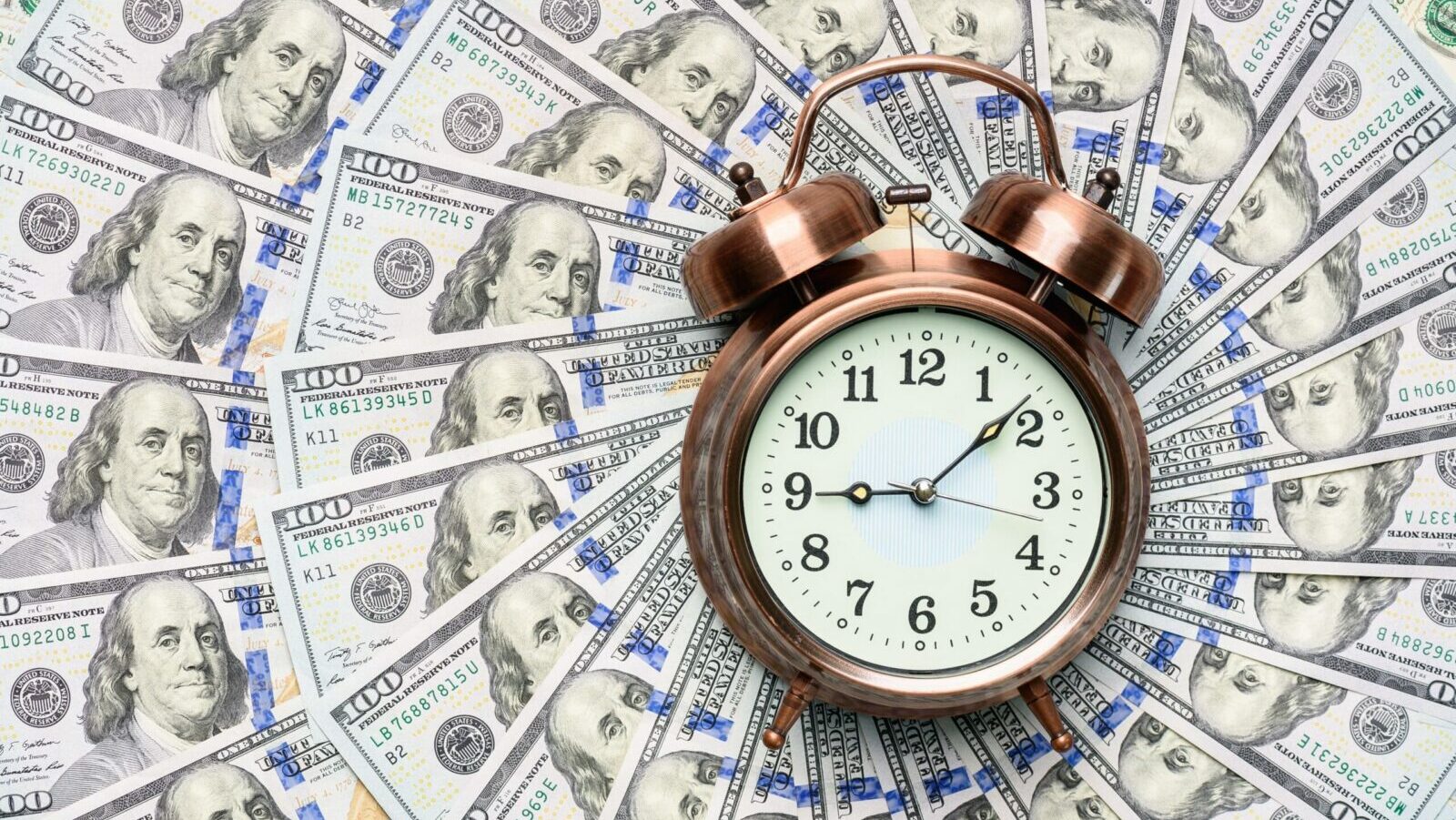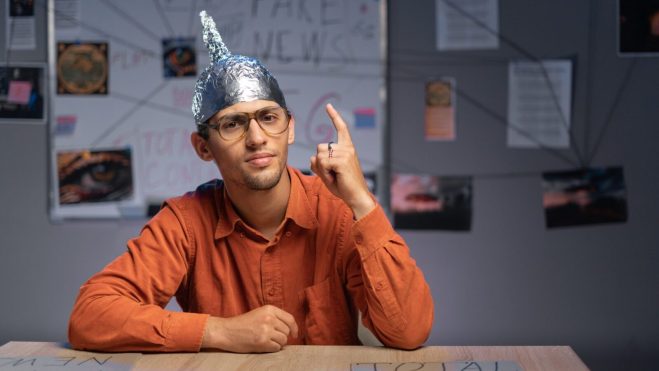The Rich Get Richer: When And Why The Wealthy Play The Lottery
For PR purposes, lotteries love a heartwarming underdog winner story — but they can’t all be like that
5 min

It started out as something different altogether, but the modern lottery system operates and exists solely on the promise that somebody, somewhere, will get filthy rich as a result of playing, and that someone may as well be you.
Sure, there are some altruistic dividends, such as post-payout funds that are funneled to school systems and government social programs, but you’d be hard-pressed to grow a business as large as many state lotteries are with a marketing pitch along the lines of: “Would you mind buying a scratch-off so the state can continue to cut the education fund?”
No, it mustn’t depend on philanthropy, but on the fantasy that you can win and turn around your wretched, dollar-store life, and if not you (this time), then some other poor wretched soul whose lack of wealth has made his or her life also just barely tolerable. And a lot of the time, that’s how it happens.
There’s no shortage of feel-good lottery stories because random numbers don’t discriminate: the ill, the destitute, the unemployed, they all have a chance, which makes more sense when you realize that the poor play at a higher rate than any other socioeconomic group.
But that’s the way it works: Take a chance. Turn your life around. It could happen. Hey, you never know. And when our numbers don’t come out, some of us feel a little better at the news that the winner was even worse off than we are.
But what about when it’s not someone who’s worse off than we are? What about when the winner is someone who’s already wealthy?
Rich people win lotteries too
Don’t think it never happens. In 2011, three investment firm executives from Greenwich, Connecticut, where in 2024 the average home costs around $3.6 million, won $254.2 million, the largest jackpot in the state’s history. They immediately formed a trust to handle the winnings (as rich people do), refused all requests from the press, and presumably went back to making customer service people miserable.
First things first: The wealthy are famous for telling us the lottery is no way to get rich and for the most part they’re right (try selling that to this week’s $44.3 million Powerball winner), but a study conducted by economist Emily Oster at Harvard in 2002 and published in Business Insider found that while poor people play the lottery at the highest rate regardless of the size the jackpot, the wealthy play at equal rates when the jackpot is very large.
They’re not being hypocritical, necessarily; they’re not trying to acquire wealth by playing the lottery. They’re already wealthy. They’re trying to grow their wealth, exponentially and immediately, like we all are.
Most of us would ask why they’re buying into huge lottery jackpots against monstrous odds when whatever they did to get wealthy in the first place worked for them. It’s a fair question.
Get a load of this: It’s because they don’t see themselves as rich.
“Wealthy people might well be wealthy by your standards and mine, but they’re not necessarily wealthy by their own standards,” said Meir Statman, Glenn Klimek professor of finance at Santa Clara University and author, most recently, of A Wealth of Well-Being: A Holistic Approach to Behavioral Finance.
Statman said essentially that wealthy people travel in circles in which someone is always wealthier. When considering their own status, a wealthy person with wealthier friends might conclude that they are kind of “in the middle,” Statman said.
“’We don’t have a private plane and we don’t have a chauffeur … ’ For people who have friends with private planes and maybe they give them a ride from time to time and they think ‘Wow, wouldn’t it be nice if I had one rather than as a favor from time to time,’ so they have aspirations as well for more.”
And so drives the desire for more, even if one has more than anyone else. John D. Rockefeller, the founder of the Standard Oil Company, America’s first billionaire, and once the richest man on the planet, was asked by a reporter, “How much money is enough?”
He famously replied, “Just a little bit more.”
The thrill of victory
That’s not all that’s at play when the wealthy try their luck in the lottery. Dr. Timothy Fong, clinical professor of psychiatry at UCLA and board-certified addiction psychiatrist, says they are trying to satisfy a basic human impulse.
“Even though they may have money, it’s always about the idea of winning a jackpot that could be very, very rewarding and enriching. That in itself is going to be something that every human is always going to want — to win something. Everyone wants to win something — not on a financial level, but on an emotional level,” Fong said.
“It’s like these doctors who go to medical conferences and get free stuff, and go ga-ga over it. Or in the old days when pharmaceutical reps would give them pens. It’s just a very human thing — when there’s a prize that we can get with little effort, we want that. Our dopamine lights up, and our natural primate instinct gets excited.”
Fong said that even he, as a gambling researcher, is not immune to this pull. When the jackpots get very large, he gets in line to try his luck just like everyone else.
“I study gambling. I know the numbers. I know the odds. I don’t play the lottery every week. I don’t do scratchers. But when the Mega Million and Powerball gets to $200 or $300 million, I’m right there at the checkout counter,” Fong said. “I’ll throw 10 bucks and I say in my head, ‘I’m not going to win, but I’m spending 10 dollars for the dream, for the what if.
“That’s a big difference for the wealthy — they know they’re not going to win. But they’re like, ‘I know I’m not going to win, but it’s only $10 and for that $10 I get a little mental mini-vacation in my head. It’s worth it. What will I do if I win? Will I donate it to the poor? Will people be coming out of the woodwork?’ All that is fun, it’s what the lottery was designed to do.”
Always punching up
The desire of the already-rich to get that prize and make a lot of money fast by gambling, which includes playing the lottery, is not limited to hedge fund managers in power ties and parted-on-the-side haircuts. Many multi-millionaire professional athletes gamble almost obsessively.
Former professional boxer Floyd Mayweather Jr. made $915 million between 2010 and 2019, making him the highest-paid athlete in the world for that decade. Yet he is well known among Las Vegas casinos and sportsbooks for his voracious betting habits, which routinely net him hundreds of thousands of dollars.
Athletes are known for having high-risk temperaments, especially boxers, but there are other ways Mayweather could scratch that itch if that’s what was driving him to gamble. He is at least partially driven by the desire for more — more prizes, more money, more everything.
Statman said that even when someone who’s wealthy sees him or herself as wealthy — as Mayweather clearly does — they will qualify the status by saying that someone in their neighborhood or social circle is so much wealthier than they are, and in that voice, you can hear them thinking that they wish they were that wealthy.
“We tend to compare ourselves to people who are wealthier than we are — it’s true for the poor, and true for the wealthy. It is wise for people to compare themselves down, and count their blessings, rather than compare themselves up, but being human, somehow, we aspire for more — and it’s good, in the sense that it creates ambition,” Statman said.
“There are some wealthy people who say, ‘I have a yacht, but Joe has a bigger yacht.’ Humans have an appetite for more,” Statman said. “It adds to people’s well-being to know that they have enough.”
There’s a famous story about just that. The celebrated American authors Joseph Heller, who wrote Catch-22, among other books, and Kurt Vonnegut, most famous for Slaughterhouse-Five, were at a party being thrown by a billionaire on Shelter Island, New York. Vonnegut told Heller that the party’s host, a hedge fund manager, had made more money in a single day than Heller had earned from Catch-22 over its entire history.
Heller replied: “Yes, but I have something he will never have: enough.”









